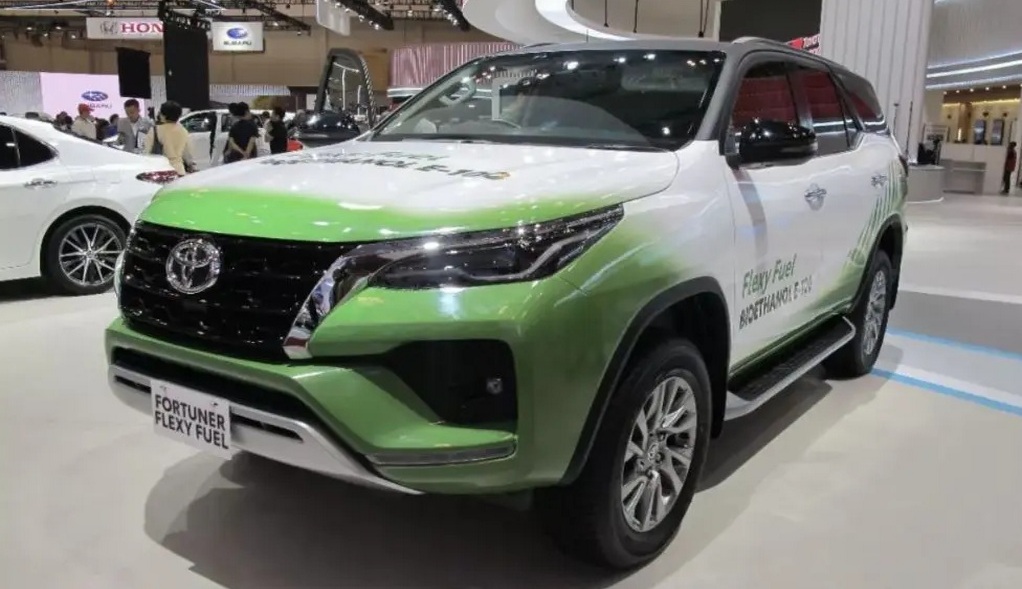Toyota has revealed a new version of its popular SUV, the Fortuner, at the Gaikindo Indonesia International Auto Show (GIIAS) 2023. This prototype SUV, named the Toyota Fortuner Flexy Fuel, operates using bioethanol, which is made from organic materials. Unlike regular ICE-powered, which is derived from fossil fuels, bio-ethanol is considered more environmentally friendly.
The Toyota Fortuner Flexy Fuel is equipped with a modified 2.7-litre, four-cylinder engine. This engine is similar to the one found in the standard Fortuner, which runs on regular petrol/diesel. However, the engine has been significantly adjusted to run efficiently on 100 per cent bio-ethanol fuel. This modification allows the SUV to contribute to a reduction in carbon emissions, as bio-ethanol is a renewable and cleaner source of energy compared to combustion-powered models. The flex-fuel engine in the Toyota Fortuner generates 161 bhp and 243 Nm of torque. This power is sent to the rear wheels through a 5-speed automatic transmission.
Interestingly, this announcement aligns with broader goals for the use of cleaner fuels. In June 2023, Nitin Gadkari, the Union Road Transport and Highways Minister, announced plans to introduce vehicles that exclusively use ethanol as fuel. In fact, he revealed intentions to launch a version of Toyota’s Camry in August, which will be powered entirely by ethanol and is expected to generate around 40 per cent of its electricity.
Tags: Bioethanol, Fortuner, Toyota



Recent Posts
Port of Tauranga to Trial New Zealand’s First Fully Electric Straddle Carrier
CMA CGM Scales Up Low-Carbon Fleet and Fuel Infrastructure to Meet Net Zero Targets
OceanScore Crosses 2,300-Vessel Mark as Demand for Compliance Solutions Grows
HD Hyundai and H-Line Shipping Collaborate on AI-Powered Autonomous and Eco-Friendly Vessel Technologies
MOL Holds Naming Ceremony for LNG-Fueled VLCC Energia Viking at DACKS Shipyard
Egypt Advances Maritime Decarbonisation with National Action Plan Backed by IMO
Fuelre4m unveils VIRDIS: A predictive AI breakthrough in global fuel distribution, powered by Five9nes
EXMAR Launches First Ammonia-Fueled Gas Carrier at HD Hyundai Mipo